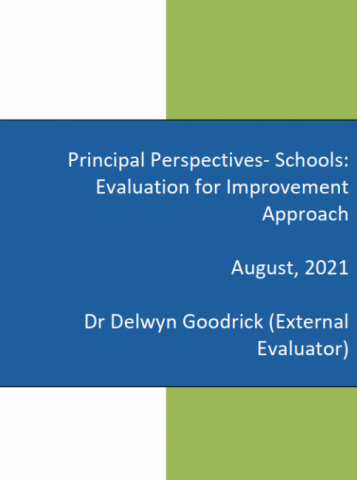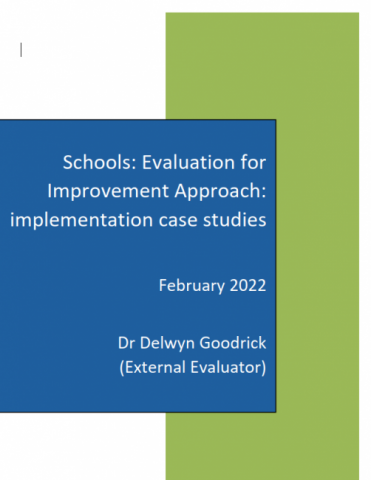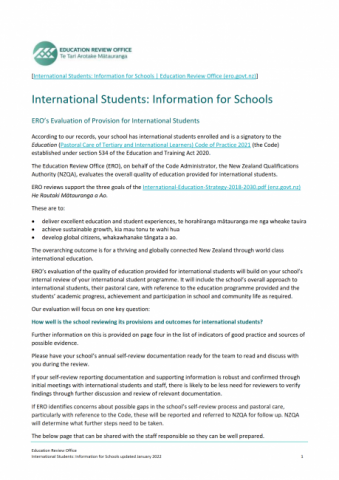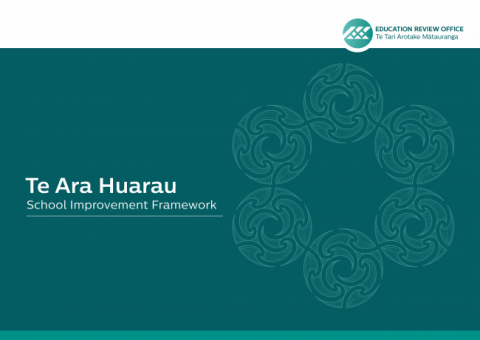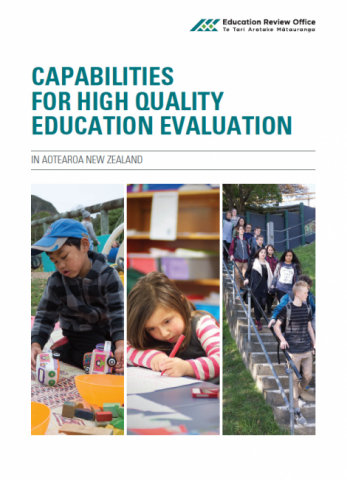Principal Perspectives- Schools: Evaluation for Improvement Approach
Published: 27 Sep 2021
The survey was developed to elicit perspectives of principals involved in the initial implementation of the Schools: Evaluation for Improvement Approach in 75 schools across New Zealand. The survey items were developed in collaboration with the Education Review Office to ensure questions reflected key domains of interest. The survey incorporated Likert scale items, and open-ended items.
- Audience:
- Education
- Schools
- Content type:
- Basic page
